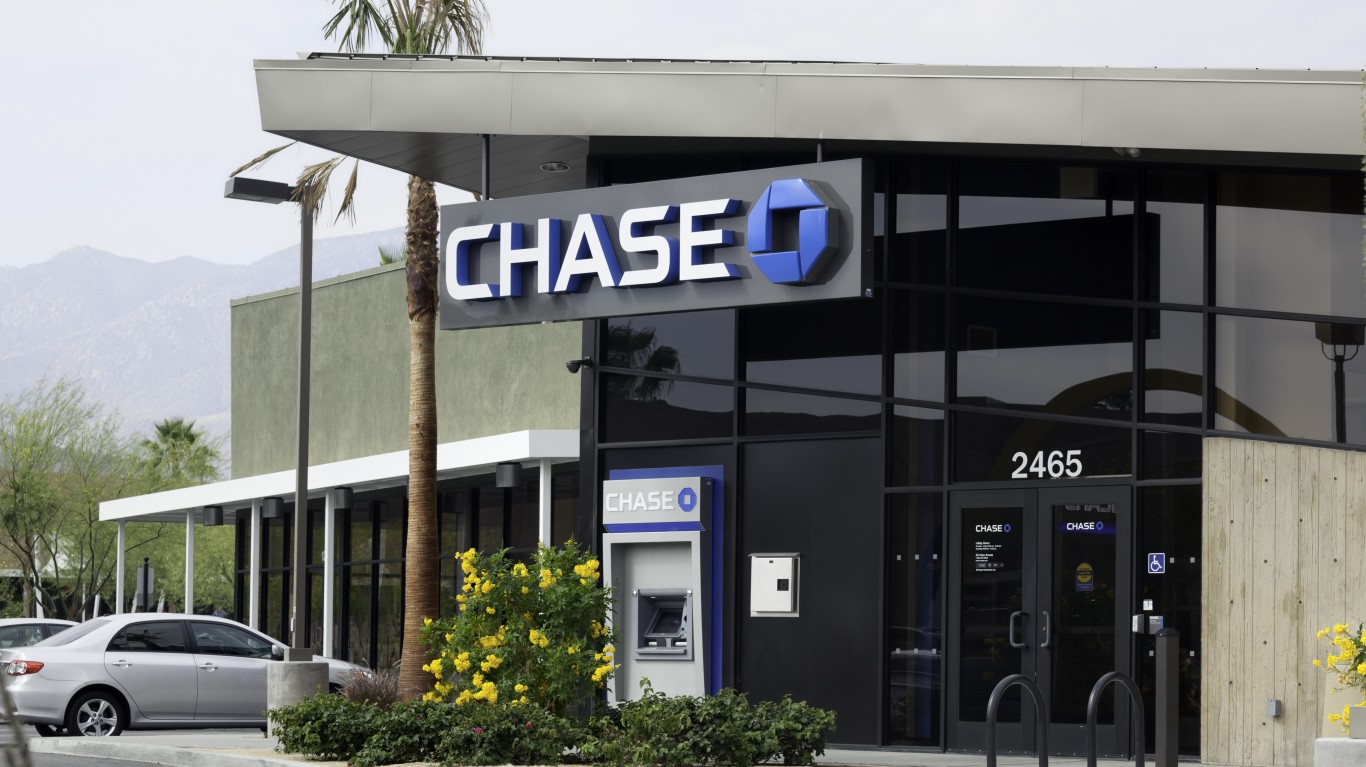
JPMorgan Chase & Co. (NYSE: JPM) reported second-quarter 2020 results before markets opened Tuesday. The investment bank and financial services giant reported diluted earnings per share (EPS) of $1.38 on managed (adjusted) revenue of $33.82 billion. In the same period a year ago, the big bank reported EPS of $2.82 on managed revenue of $29.48 billion. Second-quarter results also compare to the consensus estimates for EPS of $1.04 on revenue of $30.29 billion.
In a presentation accompanying its press release, Morgan said it expects net interest income for fiscal 2020 to come in at around $56 billion. The bank also said it expects adjusted expenses for the year to total approximately $65 billion.
Quarterly profits fell by 51% from $9.65 billion in the second quarter of 2019 to $4.69 billion. Net interest income totaled $14.00 billion, down 4%, driven by lower interest rates largely offset by higher net interest income in the corporate and investment bank (CIB) group and balance sheet growth.
Noninterest revenue reached $16.9 billion, up 33% year over year. The bank attributed the year-over-year increase to higher CIB revenue and investment banking fees.
Provision for credit losses totaled $10.47 billion, an increase of 10 times year over year and up from $8.29 billion sequentially.
By divisions, net income in the consumer and community banking group tumbled from $4.16 billion to a net loss of $176 million, commercial banking net income dropped from $1.00 billion to a net loss of $691 million and asset management group net income fell 8% to $658 million for the quarter.
Corporate and investment banking group net income soared 85% to $5.46 billion, and revenues were up 66% to $16.35 billion. Markets revenue of $11.30 billion was up 77%. Provision for credit losses in the group rose to $2.00 billion, up from zero in the prior-year quarter.
Bank CEO Jamie Dimon said:
We ended the quarter with massive loss absorbing capacity–over $34 billion of credit reserves and total liquidity resources of $1.5 trillion, on top of $191 billion of CET1 capital, with significant earnings power that would allow us to absorb even more credit reserves if needed.
Clearly, JPMorgan is being increasingly cautious, bulking up its loan loss reserves as it tries to weather the COVID-19 pandemic. The bank reported that it made $28 billion in loans under the Paycheck Protection Program and has raised a total of $1.2 trillion in credit and capital in the year to date.
The bank did not offer guidance in its press release, but the consensus estimates call for third-quarter EPS of $1.77 on revenues of $27.79 billion. The EPS estimate for the 2020 fiscal year is $5.29 on revenues of $113.37 billion.
JPMorgan reported that fixed-income trading revenue doubled to $7.3 billion year over year and investment banking fees rose by 54% to drive revenues up by 91% to $3.4 billion. Fees and trading more than offset low interest rates and reserve builds. Now, the question remains whether the nation’s other big banks can find a way to match JPMorgan’s display of strength.
The surprise beats on revenue and earnings pushed the share price higher early Tuesday’s premarket trading. On last look, it was up by about 0.7% at $98.33. The current 52-week range is $76.91 to $141.10. The consensus 12-month price target was $112.72 before results were announced.
Thank you for reading! Have some feedback for us?
Contact the 24/7 Wall St. editorial team.
 24/7 Wall St.
24/7 Wall St.


